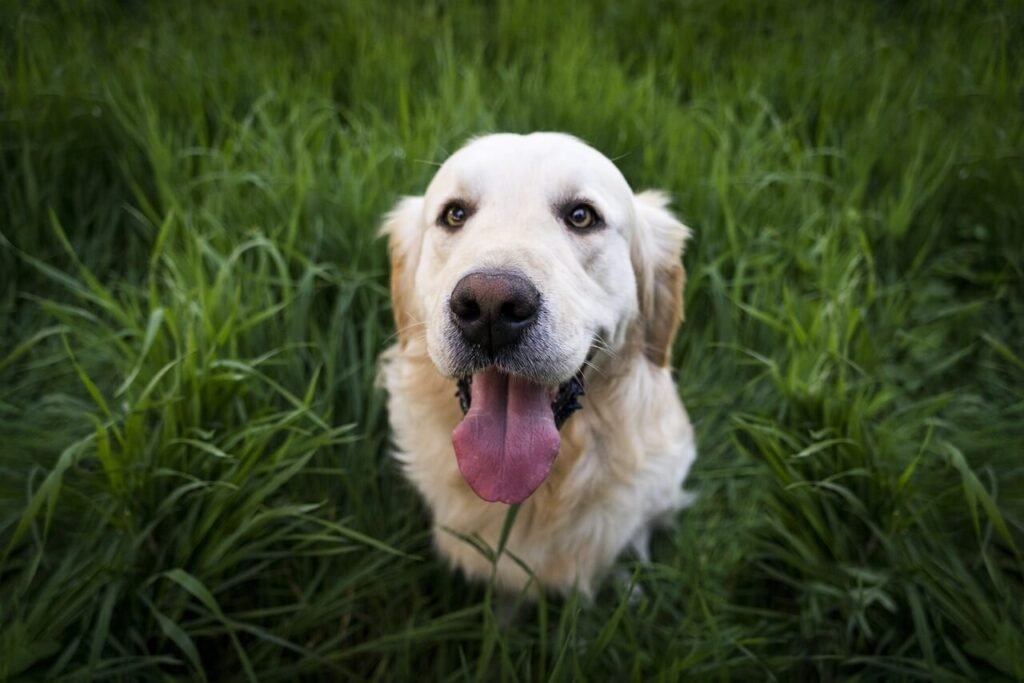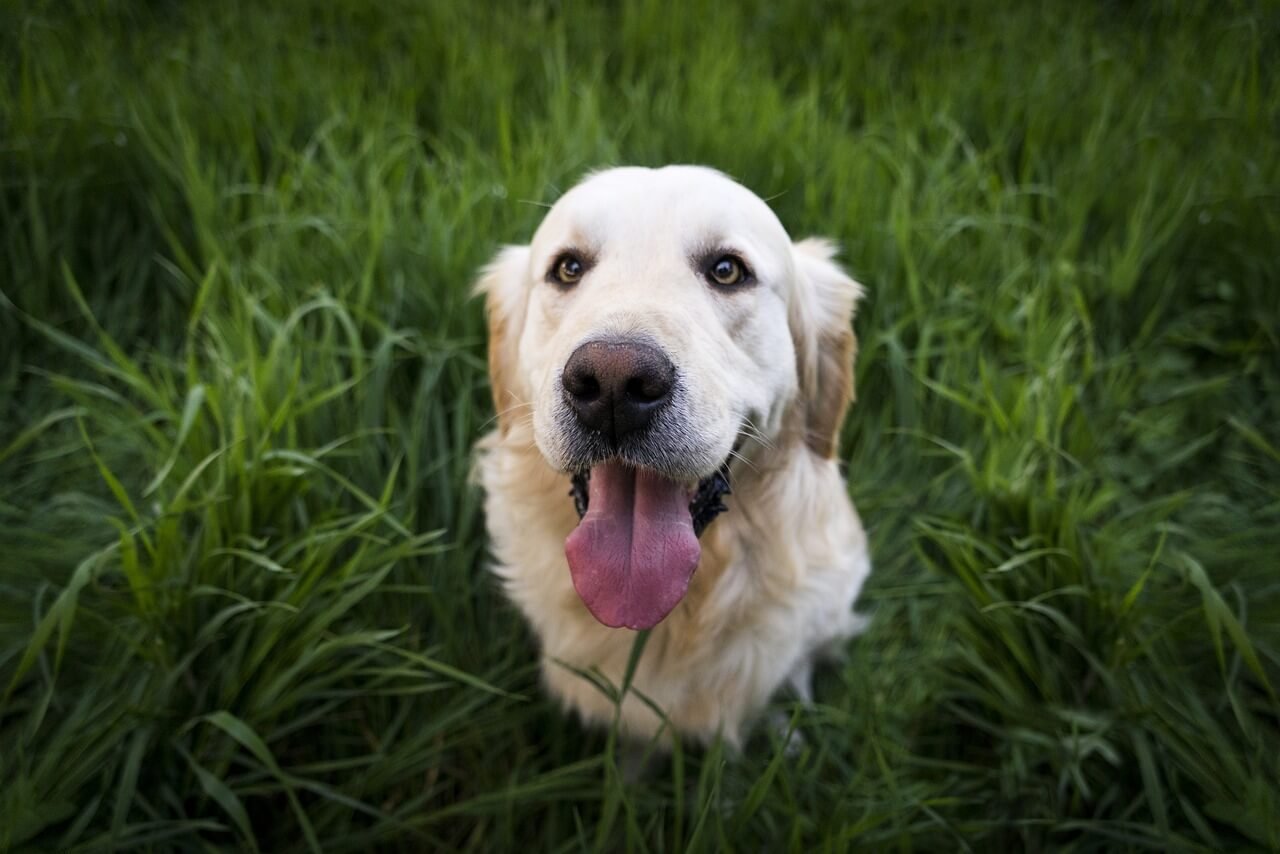How Long Does a Golden Retriever Live? A Guide to Their Lifespan
Golden Retrievers are one of the most beloved dog breeds in the world, known for their friendly nature, loyalty, and playful personalities. Whether you’re considering bringing a Golden Retriever into your home or already have one as part of your family, understanding their lifespan is crucial for providing them with the best care possible. On average, a Golden Retriever lives between 10 to 12 years, but several factors can influence this range. In this blog post, we’ll explore everything you need to know about their lifespan, including how to maximize their time with you through proper care and attention.
Factors That Influence a Golden Retriever’s Lifespan
A Golden Retriever’s lifespan isn’t just determined by genetics; various external and internal factors play a role in how long they live. Here’s a breakdown of some key elements that can affect their longevity:
Genetics : The breed’s genetic predispositions can impact their overall health and lifespan. Some Golden Retrievers may inherit conditions that shorten their life expectancy.
Diet : Nutrition plays a vital role in maintaining a healthy weight and supporting overall well-being. Poor diet can lead to obesity and related health issues.
Exercise : Regular physical activity helps keep their muscles strong and prevents joint problems like hip dysplasia.
Veterinary Care : Routine check-ups and timely vaccinations ensure early detection of potential health concerns.
Environment : A safe, loving, and stress-free environment contributes significantly to their mental and physical health.
Understanding these factors can help you make informed decisions to ensure your Golden Retriever enjoys a long and happy life.
Common Health Issues That May Affect a Golden Retriever’s Lifespan
Golden Retrievers are prone to certain health conditions that can impact their longevity. Being aware of these issues allows owners to take preventive measures and seek timely treatment. Below are some common health concerns associated with the breed:
Hip Dysplasia : A condition where the hip joint doesn’t fit properly, leading to pain and mobility issues.
Cancer : Unfortunately, cancer is a leading cause of death in Golden Retrievers, particularly lymphoma and hemangiosarcoma.
Obesity : Excess weight places additional strain on joints and organs, shortening their lifespan.
Heart Disease : Conditions like subvalvular aortic stenosis (SAS) can affect their heart function over time.
Ear Infections : Their floppy ears make them prone to infections if not cleaned regularly.
By staying vigilant and addressing these issues promptly, you can enhance your Golden Retriever’s quality of life and potentially extend their lifespan.
Check this guide 👉Golden Retriever Puppies: Best 7 Expert Tips!
Check this guide 👉How Long Do Labrador Retrievers Live? Best 7 Expert Tips!
Check this guide 👉Can Puppies Use Dog Shampoo? Best 7 Health Tips!

Tips for Extending Lifespan | Benefits |
|---|---|
Provide a balanced diet | Supports overall health |
Schedule regular vet visits | Early detection of health issues |
Engage in daily exercise | Strengthens muscles and joints |
Maintain dental hygiene | Prevents gum disease |
Keep them mentally stimulated | Reduces stress and boredom |
Daily Habits to Boost Your Golden Retriever’s Longevity
Incorporating simple habits into your daily routine can go a long way in ensuring your Golden Retriever stays healthy and happy. Consider implementing the following practices:
Morning Walks : Start the day with a brisk walk to energize both you and your pet.
Healthy Snacks : Opt for nutritious treats instead of processed ones to avoid unnecessary calories.
Grooming Sessions : Regular brushing keeps their coat shiny and reduces shedding.
Mental Games : Puzzle toys or training sessions stimulate their mind and prevent boredom.
Affectionate Bonding : Spend quality time cuddling or playing to strengthen your emotional connection.
These small yet impactful actions can contribute significantly to your Golden Retriever’s overall well-being.
Signs That Indicate Your Golden Retriever Is Aging
As your Golden Retriever grows older, subtle changes will occur in their behavior and physical appearance. Recognizing these signs can help you adjust their care accordingly. Here are some indicators that your furry friend is entering their senior years:
Slower Movements : They may become less active and require shorter walks.
Gray Fur : Patches of gray hair around their muzzle or eyes are common.
Weight Changes : Metabolism slows down, which might result in weight gain or loss.
Vision or Hearing Loss : Difficulty seeing or responding to sounds could indicate age-related decline.
Increased Sleep : Older dogs tend to sleep more during the day.
Being attentive to these signs ensures you provide tailored care suited to their evolving needs.
Creating a Safe Home Environment for Your Golden Retriever
Ensuring your home is safe and welcoming for your Golden Retriever is essential for their well-being. A secure environment minimizes risks and allows them to thrive physically and emotionally. Here are some tips to create a Golden Retriever-friendly space:
Remove Toxic Plants : Certain houseplants, like lilies or philodendrons, can be harmful if ingested. Replace them with pet-safe alternatives.
Secure Hazardous Areas : Block access to staircases or balconies using baby gates to prevent accidents.
Store Chemicals Safely : Keep cleaning supplies, medications, and other hazardous items out of reach.
Provide Comfortable Resting Spaces : Designate cozy spots with soft bedding where they can relax undisturbed.
Eliminate Small Objects : Pick up small toys, cords, or choking hazards that could be dangerous if chewed.
By taking these precautions, you’ll create a living space where your Golden Retriever feels safe and protected, contributing to their overall happiness and longevity.
Fun Activities to Keep Your Golden Retriever Engaged
Golden Retrievers are energetic and intelligent dogs that thrive on mental and physical stimulation. Keeping them engaged not only strengthens your bond but also supports their health. Try incorporating the following activities into your routine:
Fetch Games : Use balls or frisbees to encourage running and improve cardiovascular fitness.
Agility Training : Set up obstacle courses in your backyard to challenge their coordination and problem-solving skills.
Swimming Sessions : Many Golden Retrievers love water; swimming provides low-impact exercise for their joints.
Obedience Classes : Enroll them in training sessions to reinforce commands while socializing with other dogs.
Interactive Toys : Puzzle feeders or treat-dispensing toys keep them entertained and mentally sharp.
These activities ensure your Golden Retriever stays active and happy, reducing the risk of boredom-related behaviors and promoting a healthier lifestyle.
Nutritional Tips for a Healthy Golden Retriever
A balanced diet is fundamental to maintaining your Golden Retriever’s health and extending their lifespan. Feeding them the right nutrients supports their immune system, energy levels, and overall vitality. Consider these nutritional guidelines:
High-Quality Protein : Look for dog food containing real meat as the primary ingredient to support muscle development.
Omega-3 Fatty Acids : Include fish oil or flaxseed to promote a shiny coat and reduce inflammation.
Controlled Portions : Measure meals carefully to avoid overfeeding and maintain a healthy weight.
Limited Treats : Avoid excessive treats, which can lead to unnecessary calorie intake and obesity.
Fresh Water Access : Ensure clean drinking water is always available to keep them hydrated.
By prioritizing proper nutrition, you’re investing in your Golden Retriever’s long-term health and well-being, ensuring they remain vibrant and active throughout their life.
Frequently Asked Questions About Golden Retriever Lifespans
What is the average lifespan of a Golden Retriever?
The average lifespan ranges from 10 to 12 years.
Can Golden Retrievers live longer than 12 years?
Yes, with excellent care and good genetics, some can live up to 14 years.
Why do Golden Retrievers often develop cancer?
Genetic predisposition and environmental factors contribute to higher cancer rates in this breed.
How can I help my Golden Retriever live longer?
Focus on proper nutrition, regular exercise, vet visits, and a stress-free environment.
At what age is a Golden Retriever considered a senior?
Typically, they are considered seniors around 8 to 10 years old.
Final Thoughts: Cherishing Every Moment with Your Golden Retriever
While no one wants to think about saying goodbye to their beloved pet, understanding a Golden Retriever’s lifespan prepares you to make the most of every moment together. By focusing on their physical and emotional needs, you can create a fulfilling life for them filled with joy, love, and companionship. Remember, it’s not just about how long they live—it’s about the quality of life you provide. So cherish each wag of their tail, every playful bark, and all the unconditional love they bring into your home. After all, a Golden Retriever’s true legacy lies in the happiness they share with us.
How Much Is a Cocker Spaniel? Best 7 Expert Tips! Discover the true cost of owning a Cocker Spaniel, from initial expenses to expert advice on budgeting and care. Perfect for future owners!
How Much Should a Shih Tzu Weigh? Best 7 Expert Tips! Discover the ideal weight range, factors influencing it, and expert advice to keep your Shih Tzu healthy and happy.
How Much Does a Shih Tzu Cost? Best 7 Expert Tips! Discover the true cost of owning a Shih Tzu, from initial expenses to hidden fees. Perfect for future owners!
Are Shih Tzus Hypoallergenic? Best 7 Health Tips! Discover if Shih Tzus are hypoallergenic and learn expert advice to manage allergies with this beloved breed. Perfect for allergy sufferers!





